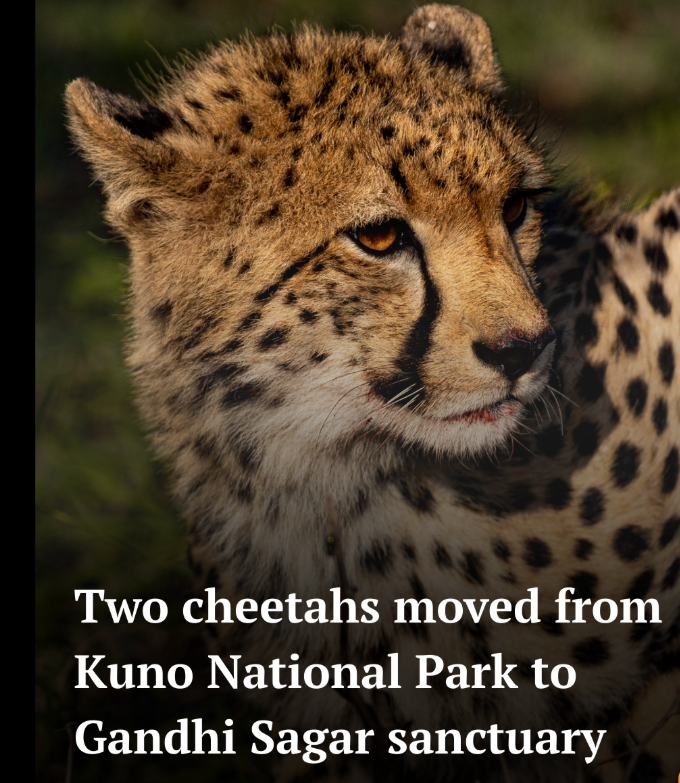PREVIOUS
Translocation of cheetahs
July 21 , 2025
16 hrs 0 min
23
0
- Cheetahs have been relocated to the Gandhi Sagar Sanctuary of Madhya Pradesh from Kuno National Park (MP).
- The Banni Grasslands in Gujarat are the largest such expanse in the Indian subcontinent.
- And it is one of the 10 sites selected for cheetah rehabilitation in the country.
- It is now fully prepared to host the big cats.
- This is a unique salt-tolerant grassland ecosystem and Asia’s largest tropical grassland.
- It was inhabited by the pastoral communities, such as the Maldharis, Rabaris, Mutwas, and Meghwals.
- The natural habitat preferences of cheetahs in Africa also include grasslands, savannahs and scrublands.
- Vantara, a Jamnagar-based rescue, conservation and rehabilitation facility of the Reliance Foundation, has reintroduced spotted deer into the Banni Grasslands.
- As part of the reintroduction effort, 20 African cheetahs were brought to Kuno National Park: eight from Namibia in September 2022 and 12 from South Africa in February 2023.
- Madhya Pradesh's Kuno National Park was the first site in India to host cheetahs translocated from Africa.
- Other potential sites listed in the action plan for the cheetah introduction
- Guru Ghasidas National Park in Chhattisgarh;
- Dubri Wildlife Sanctuary, Sanjay National Park, Bagdara Wildlife Sanctuary, Veerangana Durgavati Tiger Reserve in MP;
- Desert National Park and the Shahgarh grasslands in Rajasthan and
- Kaimur Wildlife Sanctuary in UP.
- The National Tiger Conservation Authority (NTCA) is the nodal agency for this.
- NTCA is a statutory body under the MoEFCCC, constituted under the provisions of the Wildlife (Protection) Act, 1972, as amended in 2006.
- The cheetah is the world’s fastest Mammal and the only large carnivore to be extinct in India (1952).
- It is found only in the arid regions of eastern Iran in Asia and Africa.
- Unlike other big cats (lions, tigers, leopards, and jaguars), cheetahs don’t roar.

Leave a Reply
Your Comment is awaiting moderation.


